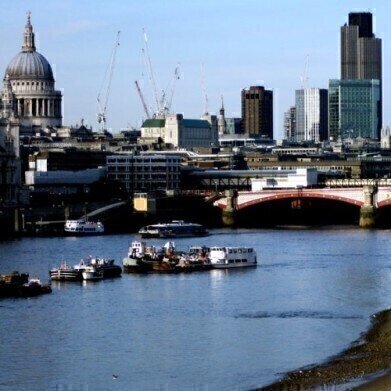Water/Wastewater
Climate change could result in sea levels rising more than originally thought
May 15 2013
The impact of climate change upon sea levels may be more severe than originally estimated. New research by Ice2sea has suggested that sea levels may rise 69 cm throughout the next century.
As climate change causes glaciers in the Himalayas and Andes to melt along with ice sheets to shed water in Greenland and Antarctica, the level of oceanic water will rise. These new estimates are much higher than the previous United Nations' Intergovernmental Panel on Climate Change forecast released in 2007. The previous report estimated that levels would only rise as high as 59 cm, but is thought not to have fully taken into account the effects that melting ice would have on levels.
According to the Ice2sea project - made up of 24 institutions from Chile and Europe - the warmer climate may lead to bigger storm surges alongside the rise in sea levels. Although these storm surges are not expected to happen regularly - just once every 50-or-so years - they could be up to a metre high by the time they hit European coasts.
Professor David Vaughan, British Antarctic Survey and coordinator of Ice2sea, said: "Today as glaciers and ice sheets lose their ice, the water that they once held has melted and flowed into rivers and seas, increasing their volume and raising global sea levels. Current rates of sea level rise are already having impacts on the most vulnerable communities and ecosystems."
European coastlines are most likely going to experience a less than global average sea-level rise, whereas low-lying islands of the Pacific could suffer the greatest increases. Although the effects on the European coastline are estimated to be minimal, some areas are still expected to be affected.
The Thames Estuary in London contains the Thames Barrier that protects the city from high storm surges - so high they are only estimated to occur every 1,000 years. However the barrier could be topped by storm surges every 150 years if the sea level in the estuary rises by 50 cm. It could then be breached every 12 years if the sea level rises by a metre.
Professor Vaughan said: "It is likely some future ice loss and sea level rise is now unavoidable. But nevertheless, understanding why changes are occurring today and how they could increase in the future is the first step in maintaining the security of our coastal regions for future generations."
Events
Jul 23 2025 Sydney, Australia
Aug 24 2025 Stockholm, Sweden and online
Aug 27 2025 Busan, South Korea
Sep 02 2025 Mexico City, Mexico
Sep 02 2025 Mexico City, Mexico














